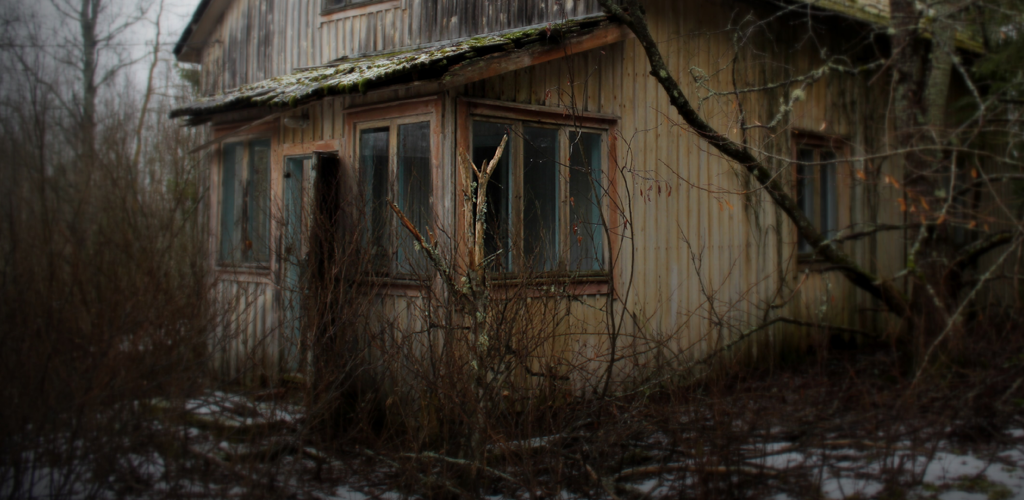The path was riddled with nettles. Thick bushels protruded from the ground, wavering in the coastal wind that pumped, relentless, from the cliffs below. I was underdressed, so you draped your coat over my shoulders.
“I told you to bring something warmer. I guess I’ll freeze instead.”
There was no room to reply. We slipped through the kissing gate- you first, watching seagulls wheel through the breeze, their screams cracking against the drum of the ocean. I explored your coat pockets, sifting through makeup and keys and balled up tissues before finding your cigarettes. I placed one between my lips and flicked the lighter. The flame engulfed the shivering tip and I inhaled deeply, smoke unfurling into the air. You turned to look at me, contempt curling your lip.
“Did you ask?”
“I’m sorry,” I replied.
“Stop apologising. I’m sick of it.”
I swallowed. A nettle grazed my ankle and I bit my lip, hard, careful not to let anything but smoke escape my mouth.
The back of the house was boarded up. Thick slats of rotting wood were nailed into the walls, a graffiti tag slashed over the discoloured paint. You stopped, and I stopped with you. You didn’t speak.
“Is this it?” I asked.
You nodded. I offered my arm but you didn’t take it, balling your fingers into a fist. I could see the tension in your shoulders, militantly straight, and I wanted to knead them, to thumb out the knots you carried with you. I didn’t know how to soften you.
When you told me we were coming here, your expression didn’t change. It was presented as a fact, not a request. It had taken a year before you mentioned your childhood. Another year before I learnt about your grandmother. And it remained like that, a solitary mention of the woman who raised you. As the train left London behind, I knew not to ask any questions. I watched you sit, lost in thought, staring at the rain sliding down the window. Now, as we picked our way around the blackberry thickets that consumed the white fence, my patience was beginning to wane.
“Why now?” I asked. You were ahead of me, trampling down thistles with such force that you nearly lost your balance. I ran to steady you, placing my hand on your wrist, but you hit my arm away, hard enough that I winced at the impact. The cloud cover had broken. I glanced at you, the sunlight smoothing over your frown lines, and for a moment you looked at ease, as weightless as the day I met you. The light shifted, and it was gone.
We approached the front of the house in silence. The door was boarded up too.
“What should we use to break it?”, you asked, facing me for the first time.
“Why now?” I repeated.
You opened your mouth as if to speak, then shut it again, scanning the garden instead.
“Help me look.”
“Not until you answer my question.”
I didn’t usually speak to you like that. I braced myself, watching you carefully, waiting for something – anything- but nothing came.
“It was time,” you said. “She’s been gone for long enough now.”
“Long enough for what?”
You looked away without reply. I stepped forward.
“Long enough for what? Jesus, I’m helping you break into this house in the freezing cold, so the least you could do is tell me why?”
I retreated backwards as I finished, the words charging the air, crackling between us. Before I could apologise, you were inches in front of me, gripping my face around my jaw. It hurt. Your fingers trembled as you lowered your hand, a dangerous look on your face.
“Watch your tone,” you whispered. I nodded, and you let go.
The tumult had startled a bird from the gutter, and it flew atop the oak tree, watching us intently. As I rubbed my cheek, it started to caw, the sound stark, grating. You turned away from me and walked towards the door.
“Come here,” you said, and I complied. “Pull it.”
“Pull what?”
“The wood. It’s weak enough. It’ll probably break.”
“Please -”
“Do it.”
There was a finality to your tone. I had misread apprehension for vulnerability, pushed too hard, as I often seemed to do. You watched as I wrapped my fingers around the board and levied all my strength backwards. The wood splintered into my palms. I loved you. I loved you enough to do this.
“Can you help me?” I panted, struggling against the board.
Your tongue emerged from your mouth, licking your lips. You surveyed me, tilting your head as if I was an object of fascination for dissection and study.
“You really are useless, aren’t you?”
I kept on going until I couldn’t anymore. I collapsed backwards, breathless, and examined my bloody hands.
“I’m sorry,” I whispered.
You disappeared around the side of the house, and I wondered if you’d come back. You had a habit of leaving me when I needed you the most.
A moment later, you reappeared. I look up to see an axe slung over your shoulder, the head red with rust.
“Granny used to love a fire,” you said, stepping over me and swinging at the wood. Fragments split from the boards as you hacked away, over and over again, until the doorway was clear. I remained on the grass, the dew stinging my hands. My teeth started to chatter as I tried to steady my breathing.
“When did you remember the axe was there?”
You didn’t reply, throwing it to one side as you disappeared into the house.
…
Biography: Anna Pembroke is a writer and English teacher based in London, England. Raised in South Africa and Nigeria, she taught in Malaysia for a year before beginning a degree in English Literature and Creative Writing. She spent the Fall 2018 semester at the Aegean Center in Paros, Greece. Twitter: @annaisediting
…
Image: unsplash.com





